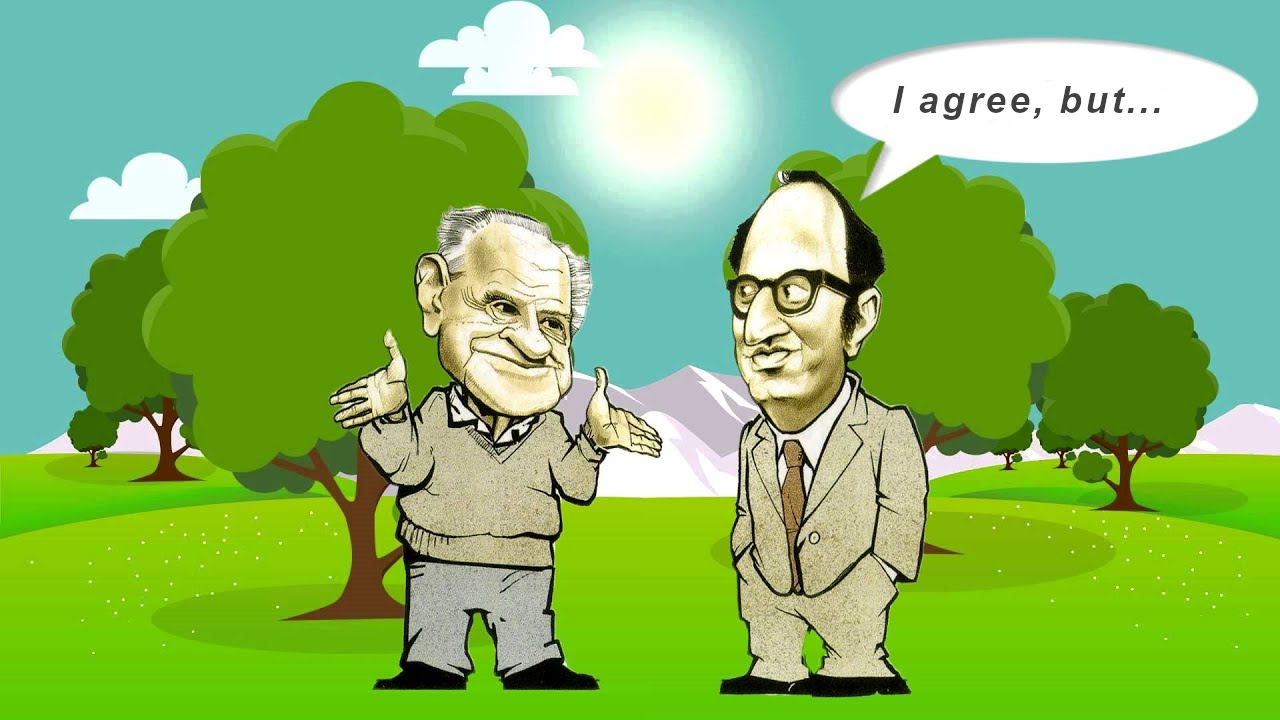3b Philosophy of Science
Week: 27/05

Learning Objectives
We will closely examine the perspectives of various thinkers on the question of what distinguishes science from non-science or pseudoscience, known as the demarcation problem. This will include a look on the historical ideas of philosophy of science (empiricism & positivism), and a detailed exploration of modern philosophers of science such as Karl Popper and Thomas Kuhn (refer to the picture above).
Tutorial Meeting
Question 1
Define the terms verifiability and falsifiability?
Question 2
Not every statements is verifiable and or refutable/falsifiable. Please indicate which statements are falsifiable and verifiable and, importantly, why do you think so?
| Statement | verifiable | falsifiable | |
|---|---|---|---|
| 1 | Ghosts exist. | \(\bigcirc\) | \(\bigcirc\) |
| 2 | Military officers are more socially embedded in the army than soldiers. | \(\bigcirc\) | \(\bigcirc\) |
| 3 | The immediate family is a social group. | \(\bigcirc\) | \(\bigcirc\) |
| 4 | The birth rate in the Netherlands will first drop, and then increase again. | \(\bigcirc\) | \(\bigcirc\) |
| 5 | Scorpios are often unable to work with their colleagues, and even have a tendency to be rude (astrology). | \(\bigcirc\) | \(\bigcirc\) |
| 6 | The id is the most primitive part of our psyche, being led by the principle of lust (Freud). | \(\bigcirc\) | \(\bigcirc\) |
| 7 | Our current fear of spiders is an adaptation that had an evolutionary advantage for our ancestors to survive (evolutionary psychology). | \(\bigcirc\) | \(\bigcirc\) |
Question 3
Following logical positivism, how can you prove the correctness of a statement/theory?
Question 4
What is the positivists’ standard view of science?
Question 5
One of the most fundamental critique against the logical positivism is that there are no theory-neutral observations. Explain what that means and give an example.
Question 6
Beside that problem of theory-neutral observations, Popper had a very principle critique critique of positivism? Explain this critique.
Question 7
Look at these two statements of Karl Popper.
- “A theory that explains everything is explains nothing.”
- “The more a theory forbids, the more it says about the world.””
To which concepts in his philosophy that that refer to?
Question 8
Explain the stages in Thomas Kuhn’s Phase model of science.
Question 9
Explain the term incommensurable and how does it play a role in the philosophy of Thomas Kuhn?
Study Checklist
- Demarcation Problem
- Logical Positivism
- The Standard View
- Assumptions of Positivism (see lecture 3)
- Problems of Positivism
- especially (not independent) Observations
- Karl Popper
- Critique of Positivism
- Falsificationism
- critical vs. dogmatic Thinking
- Thomas Kuhn
- paradigms
- incommensurability
- Scientific revolution
- Phase model of scientific development (see lecture 3)
- Lakatos
- Competition between research programmes
- Empirical content
- History of Philosophy of Science (Piekkola subchapter)
- Empiricists: Lock & Hume
- Positivism: Vienna Circle, Comte and Mach